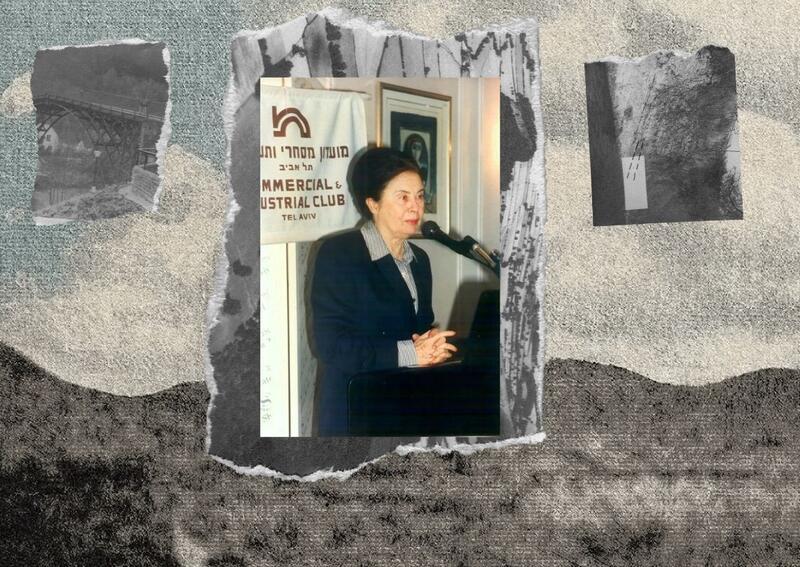Learning from Ora Namir and Advocating for a Better Israel
Like most other Jewish American children, I grew up hearing “Israel is your home!” echoing in my ear. I watched as b’nei mitzvah at my temple were given Passport to Israel funds on their special days, and I fantasized about reading a book while floating in the Dead Sea. I learned how to draw an Israeli flag before I could draw an American flag, and despite my absolutely horrific geography skills, I’ve somehow always been able to point out the tiny country on a map.
Due to the disruptions of a certain recent pandemic, I didn’t get the chance to actually visit Israel until I was fifteen, more than two years after my bat mitzvah. And as the story goes, the minute I stepped off of the plane (or more realistically, after I finished getting swabbed for Covid and changed out of my sweaty plane clothes), I knew that I belonged there. I relished all the classic Israel experiences: grabbing falafel every chance I got, dragging my feet up Masada, and of course, floating in the extremely salty Dead Sea.
Of course I knew that Israel was a confusing and flawed country, but during my trip, I remember trying to push those feelings away. Whenever I heard my family friends in Israel discussing various elements of their own government that frustrated them, I would block them out; there was already enough political division in America, and this was supposed to be my homeland, the trip a thrilling experience of discovery and adventure.
I know I should’ve explored those opinions and emotions, and especially in light of Israel’s response to Hamas’ horrific terrorism against the people of Israel, I have been forced to engage more deeply with my feelings surrounding this country. During this time of extreme tension and heightened anxiety for many communities, I have been looking back on some of the events of this past summer that I paid little attention to, namely the judicial reforms in Israel that took place over the summer. In short, far-right politicians, including Prime Minister Netayahu, passed reforms that limited judicial power and strengthened the authority of the Knesset, endangering Israel’s democracy and limiting the voice that citizens have in their government’s actions. These terrifying measures had prompted a multitude of inspiring protests from Israeli citizens.
I am in no way proposing any specific course of action for a government that I know little about, but the actions taken by so many progressive Israelis against their far-right government have inspired me to consider the history of activism and fights for equality within the state of Israel. I am particularly inspired by the legacy that a woman by the name of Ora Namir left in the place that holds such a complex, essential place in the hearts of many Jews.
Born on a moshav in 1930 to two immigrants from Ukraine, Namir completed a majority of her education at Givat ha-Sheloshah. She served in many notable roles in the Israeli government, including twenty two years as a member of the Knesset. She served as the minister of the Environment and of Labor and Social Welfare, and on committees of Education and Culture as well as Labor and Social Welfare
In 1975, Namir was invited to head a commission investigating the status of women in Israel. One hundred Israeli female volunteers, ordinary citizens, and legislators summarized their findings in the two volume Namir Report. Although they were largely ignored by the prime minister, these women were able to capture the prevalence of sexism and the second-class status of women in Israel through their research. They called for grants for single moms, free public education for children over the age of three, and for thirty slots to be saved for women in the Knesset. Many of them were the founding members of the Israel Women’s Network, a testament to Namir’s influence on the Israeli feminist movement for generations to come.
She also helped pass a multitude of essential laws for women and marginalized people in Israel, including laws for minimum wages, equal pay for men and women, and accessibility for disabled people. The Equal Pay for Men and Women Workers Act, the Minimum Wage Law, and the Blind People’s Rights Act are three examples of the change she enacted during her decades in government.
Namir, much like Israel itself, was incredibly complicated – some of her stances, including those on immigration, go up against my values, to say the least. However, the work that she did to combat injustices while serving in positions of power and the ways in which she chose to push for tangible change despite ostracization and ignorance from her male counterparts were immensely impactful. She examined the power imbalances in her homeland and vowed to try and make things better.
Israel will never become unimportant to the Jewish people, but the unrelenting pride in this land that Hebrew school instilled in my generation may not be as resonant anymore. However, Namir’s story has helped me to understand that having a complex relationship with Israel is not only normal, but can be powerful. leftist Israeli activists have always engaged with that nuance and fought for their country to be a just and equal one, whether through writing long lists of complaints to government officials or protesting on the streets for the salvation of their democracy. Learning about and from activists like Ora Namir can help us understand the complex history of marginalized people in Israel and restore our faith in our collective ability, as the Jewish people, to fight for justice and equality in every space that we call home.
Despite centuries of injustice and division within the Jewish community, especially as it impacts women, I am proud to be a part of a faith, a people, and ultimately a small country that carries on the legacy of Namir and those who fought before her, with her, and will continue to fight.
This piece was written as part of JWA’s Rising Voices Fellowship.







